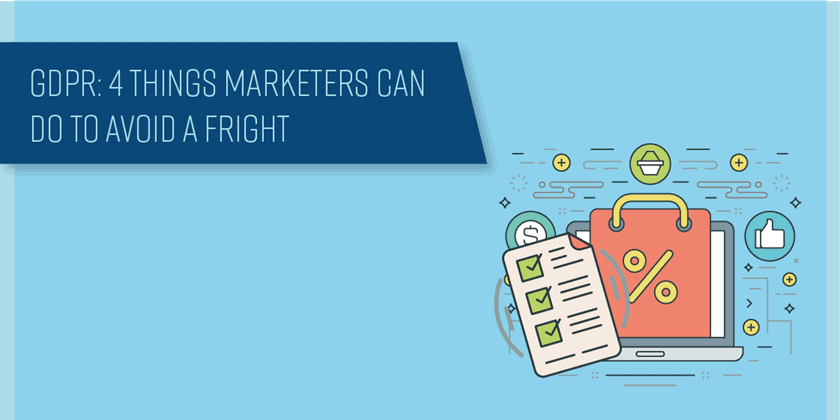Data is an integral cog in marketing. Healthy data is used to run and maintain marketing and advertising campaigns for companies across the globe. It affects any B2B or B2C marketer that is reliant upon a valuable database as part of its CRM strategy.
By now Big Data is an established driving force behind marketing. However, the GDPR forces us to reevaluate this. Marketers will always tap into customer analytics to improve the quality of sales leads, improve conversion and align content with the sales cycle and buyer journey.
The marketing arm of your company is particularly susceptible when it comes to data protection. This is down to the sheer amount of information that is often shared by, and amongst, numerous different stakeholders in countries across the globe. This data is necessary to run successful marketing activities, events, conferences and trade shows. With that in mind, we’ve put together four things marketers can do now in order to avoid a fright when GDPR arrives next year.
GDPR Means Inbound Marketing

With the arrival of GDPR, companies should already be tackling the issue of permission, obtaining fresh explicit consent to receive marketing communication. This is the case regardless of whether the database is from a purchased customer list, the onus still relies on the company doing the marketing to that list to ensure that consent of the individuals is clearly documented.
This may seem like a marketers’ nightmare, but instead of seeing it as a nightmare it should be seen for what it is. It provides a great opportunity to create compelling, engaging content that prospects need. In return, marketers receive renewed customer interest and can nurture them through their marketing funnel this way. GDPR for marketing means targeting the right customers with the right content at the correct stage of their inbound journey.
Audit Existing Marketing Processes

You need to check and make sure that your terms and conditions, your sign-up agreement and your subscription settings pass the GDPR requirement to be in clear, concise language. If not you will need to revisit this straightaway.
• Review your customer database (document who opted in for what and until when)
• Do you have permission to track an IP address? (are you certain your sending the right document to the right person)?
• Do you have a subscription link in all communications, across all platforms?
A Good Defence is Mandatory

You should also have a procedure in place if a security breach does occur. How you deal with any breach will impact your case. Those who have shown that they have taken stringent requirements to rectify any security breach will find themselves with a good defence when it comes to the handing down of fines. As has been well explained at this point, companies are faced with fines of €20 million or 4% of global annual turnover in the event of a breach so the more protection from this companies have, the better.
Consent Becomes Vital

Marketers need to give more consideration to the concept of consent. Direct marketing appears in GDPR as an example of legitimate interest (including commercial benefit). However, Article 29 has warned that legitimate interests should not be used on the basis that it is less constraining than the other grounds. So, it’s not a get out of jail free card for direct marketing. Relying on legitimate interest is a risky proposition and marketers should be careful if they take this approach to GDPR compliance.
How do you think marketing will be affected by GDPR? Do you think it will be harder for marketers, better for customers? Let us know in the comments below.







